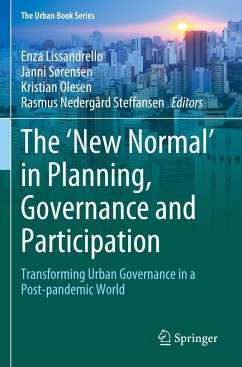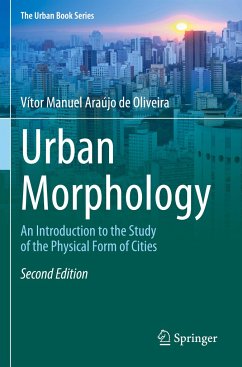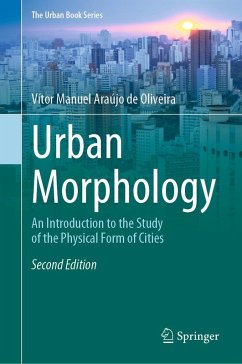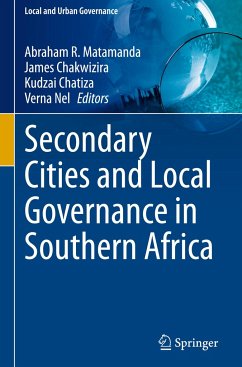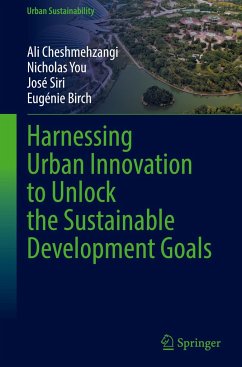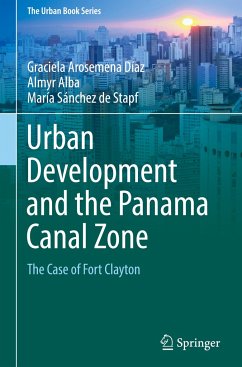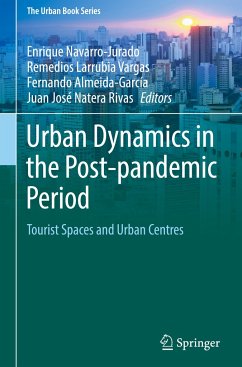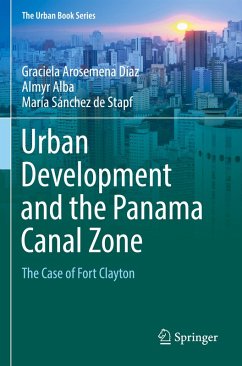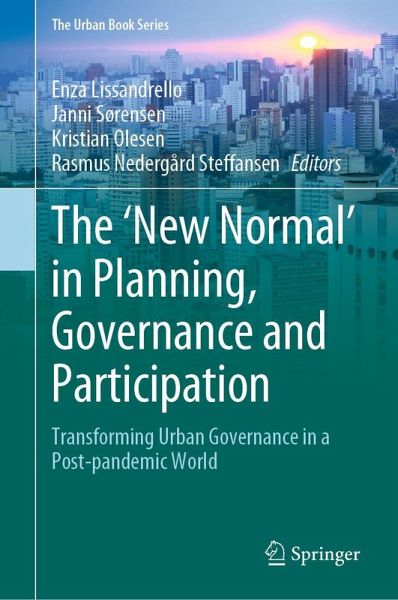
The 'New Normal' in Planning, Governance and Participation
Transforming Urban Governance in a Post-pandemic World
Herausgegeben: Lissandrello, Enza; Sørensen, Janni; Olesen, Kristian; Steffansen, Rasmus Nedergård

PAYBACK Punkte
54 °P sammeln!
This book offers a unique and timely contribution, informed by responses to the COVID-19 pandemic, to unpack the intertwined challenges that planning needs to cope with in the future. It argues that the pandemic and post-pandemic periods, in their successive waves of restrictions and social distancing, have disrupted 'normal' practices but have also contributed to shaping a 'new normal'. The new normal is emerging, re-configuring, and prioritizing the substantive objects of planning and its governance and participatory processes. This book discusses this shift and presents a collection of epis...
This book offers a unique and timely contribution, informed by responses to the COVID-19 pandemic, to unpack the intertwined challenges that planning needs to cope with in the future. It argues that the pandemic and post-pandemic periods, in their successive waves of restrictions and social distancing, have disrupted 'normal' practices but have also contributed to shaping a 'new normal'. The new normal is emerging, re-configuring, and prioritizing the substantive objects of planning and its governance and participatory processes. This book discusses this shift and presents a collection of episodes and cases from diverse European urban contexts to develop a new vocabulary for describing and addressing challenges, models, perspectives, and imaginaries that contribute to defining the new normal. The book is aimed at scholars interested in urban planning, sociology, geography, anthropology, art, economy, technology studies, design studies, and political science.



